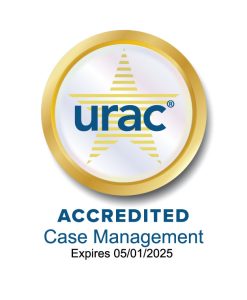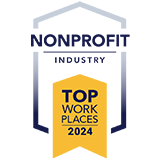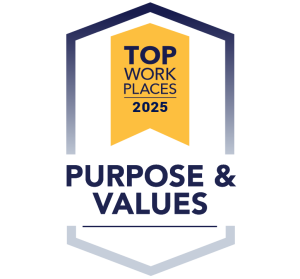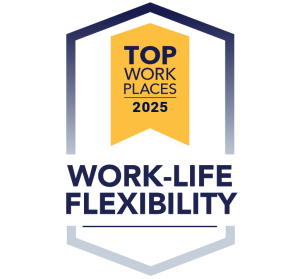March is Developmental Disabilities Awareness Month, a time to raise awareness about the inclusion of people with developmental disabilities in all facets of community life, and the barriers that people with disabilities still sometimes face in connecting to the communities in which they live. Each March, the National Association of Councils on Developmental Disabilities (NACDD) and their partner organizations work together to create a social media campaign for Developmental Disabilities Awareness Month that highlights the many ways in which people with and without disabilities come together to form strong, diverse communities. This year they selected artwork featured at local DC studio Art Enables and artist Jamila Rahimi to serve as logo imagery for DD Awareness Month.
For 40 years, The Coordinating Center has been committed to the concepts and frameworks of individual choice and community inclusion. The values of equity and inclusion, integrity and collaboration, as well as excellence, learning and impact drive the organization’s philosophy and approach to care coordination services. The Coordinating Center partners with individuals on things that matter most to them, by focusing on the individual’s goals, strengths and abilities. We recently sat down with Pamula Mills, PhD to learn more about this person-centered approach and the work The Coordinating Center is doing to partner with people with intellectual and developmental disabilities.
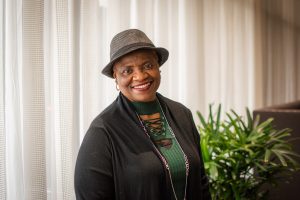 Can you tell us a little bit about yourself and your position at The Coordinating Center?
Can you tell us a little bit about yourself and your position at The Coordinating Center?
“I joined The Coordinating Center as its new Director, Coordination of Community Services (CCS) in November 2020. I am a clinical psychologist who is passionate about mental health and supporting people with intellectual and developmental disabilities. Prior to coming to The Center, I was the Program Director of a nonprofit in Washington, DC, responsible for the management of supported living, day habitation, and companion services for individuals with intellectual disabilities and psychiatric disorders.”
“As the Director of CCS, my primary responsibility is to provide programmatic and contractual oversight for the delivery of Coordination of Community Services, ensuring that all of the individuals we support receive the services they need to maximize their independence in the community. I am surrounded by an extraordinary team of Coordinators of Community Services, a Team Leader and Team Manager who are deeply committed to the individuals we are privileged to serve. I love my job because I enjoy seeing people grow and develop into their purpose.”
What is Coordination of Community Services (CCS)?
“The CCS program is a program of the Maryland Developmental Disabilities Administration (DDA), which enables participants and their families to gain access to critical resources and Medicaid Waiver services that encourage self-sufficiency, health and safety and real community participation. The Coordinating Center is one of several organizations that provide Coordination of Community Services for the DDA.” Learn more HERE.
When did The Coordinating Center become a provider for the DDA for Coordination of Community Services and how has it grown?
“Here at The Coordinating Center, our team is committed to the philosophy of self-direction. We believe individuals with developmental disabilities have the right to direct their lives and services. That is why in 2020, we joined the Maryland Developmental Disabilities Administration (DDA) as a provider of Coordination of Community Services. Our team is committed to is on assisting individuals with intellectual/developmental disabilities and their families in learning and gaining access to resources in their community, planning for their future, and accessing needed services and supports.”
“The DDA Program parallels many other programs at The Coordinating Center in terms of its mission to help the population develop from one phase of their lives to the other. The Coordinating Center originated with the purpose of assisting individuals to live in the community and in their home, which DDA is very similar. Intellectual Disabilities reached the Self-Advocacy Movement in the 1980’s and comes from a complex history of not understanding individuals with different abilities.”
“When I came on board in 2020, we had approximately 30 participants we were supporting in the Central and Southern regions of Maryland. It was a challenge in the beginning putting all the pieces together to establish the program because of how dynamic it is. By immersing ourselves into understanding the program and by establishing strong partnerships with the individuals and families we were honored to meet along the way, we grew the program exponentially. In just a short amount of time our CCS program has served over 600 individuals in Southern, Central and Eastern Maryland, nearly 400 of whom have chosen The Coordinating Center as their CCS Provider.”
What are the top four services that Coordinators of Community Services help individuals locate and access?
“First and foremost, we are focused on helping individuals understand the DDA Waiver programs. There are three waivers under the DDA: Community Support Waiver, Community Pathways Waiver, and the Family Supports Waiver. The DDA Waiver programs consist of services that support individual’s assessed needs. Coordinators assist individuals with assessing and locating programs such as Meaningful Day, Supportive Living, Habitual Day, Residential, and Respite Care. Among the top four services we coordinate most frequently are personal support services, employment services (training and locating positions), respite and residential services.” Click HERE to learn more about the DDA Waiver programs.
What is START and what are some lessons learned from participating in pilot program and how has it impacted service delivery beyond the pilot?
“In 2021, The Coordinating Center was selected to participate in the START Pilot program for the DDA in Central Maryland. START, which stands for Systemic, Therapeutic, Assessment, Resources, and Treatment, combines evidenced-based practices in community-based crisis prevention services for individuals with intellectual and developmental disabilities and mental health needs. Team members were selected to participate in a rigorous 19-week training course, which led the team to better assist individuals with these needs.”
“We were the only CCS agency to complete the START pilot, which resulted in a special invitation to join the Dual Diagnosis Capacity Building Institute (CBI) Collaborative with the National Association of State Directors of Developmental Disabilities Services. We are taking the lessons learned from the START Program and working alongside another team of professionals in developing strategies and policies for the state of Maryland in the intellectual disability and mental health field. Participation in START has resulted in better customer service and coordination of community services for people with dual diagnosis. We have a better understanding of the needs of individuals and their families and take a more empathetic approach to supporting this population.”
What sets The Coordinating Center apart from other providers?
“We are a small, but mighty team and we are growing. Our program has a very strong team structure that enables team members to develop individual growth by learning from each other. Our team thoroughly believes in the mission, and we enjoy the work that we do. Also, our training is top notch! We provide additional training for our team that goes beyond the contract requirements and that includes our center-wide approach to diversity, equity, inclusion and belonging. We are known for having a quick turnaround with the individuals and families we support and strong relationships. We are also uniquely positioned to serve people in multiple Medicaid programs, whether it’s transitioning them from one program to another or coordinating care between coordinators through different programs.
One of my favorite things we offer is a Virtual Cup of Joe with our team. Anyone can participate in our virtual offering, which is held on the third Friday of every month. You don’t need to be working with The Coordinating Center to attend. Come with your questions and learn more about The Coordinating Center and the work that we are doing to support people with intellectual and developmental disabilities.” Click HERE to learn more.
Where do you see the program in the next five years?
“I see us growing and expanding to the entire state of Maryland. We will continue to invest in our team to ensure that we have highly skilled Coordinators of Community Services. I’m also hopeful with the new administration’s commitment to “End the Wait List” that more people will be served, so that everyone can achieve their aspirations for independence, health, and a meaningful community life.”

